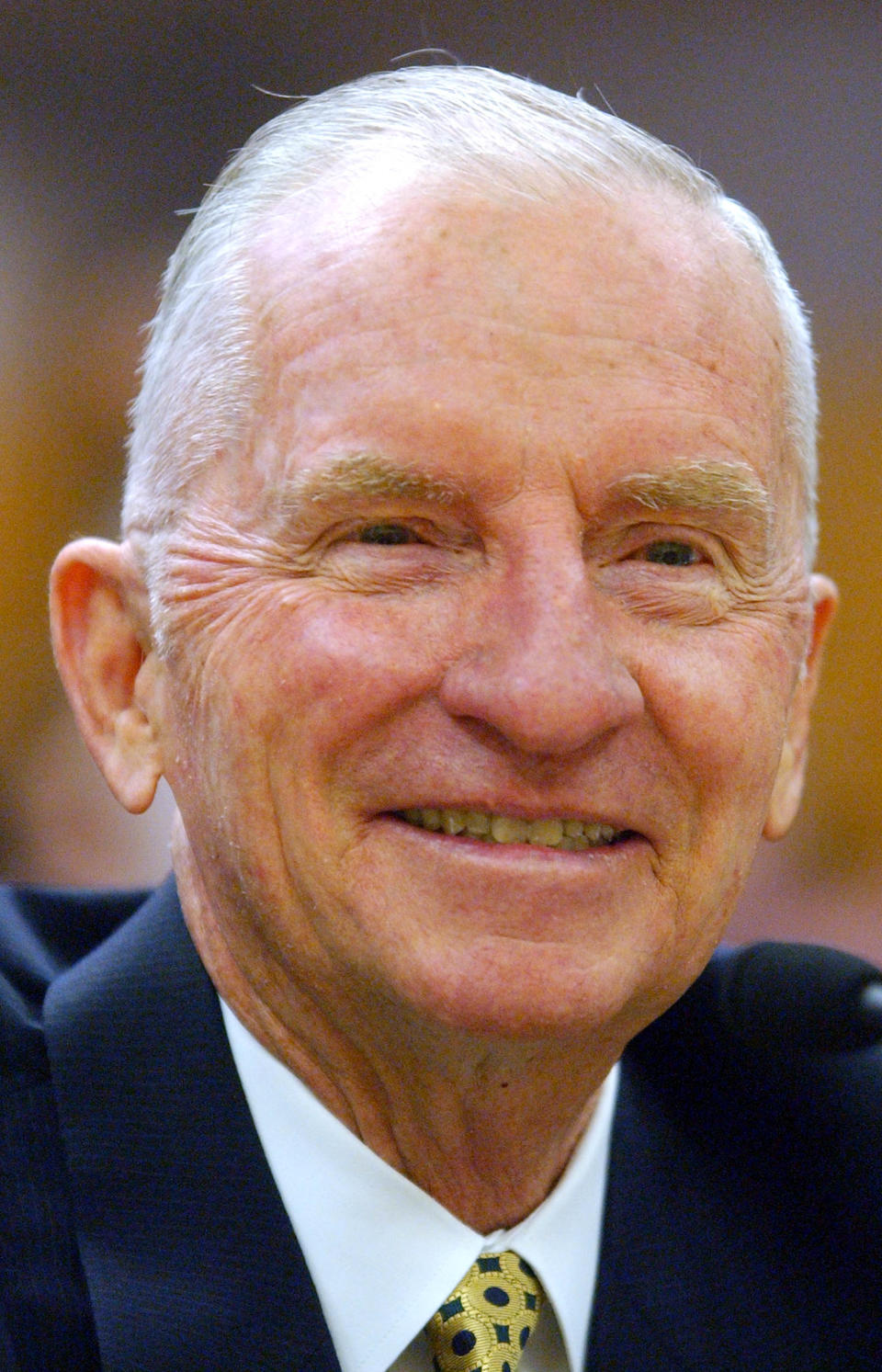Rollins: Ross Perot was a patriot who drew attention to globalization and deficits
America lost a great patriot Tuesday with the passing of an American icon, Ross Perot.
Perot was a can-do warrior, a self-made billionaire businessman, and an unabashed lover of America who turned millions of Americans into believers that he, and they, could make a difference in altering the political process. He was a great family man, with an impeccable character who lived by the oaths he learned as a young Eagle Scout.
He supported many wonderful causes, and through his good deeds, often given anonymously, helped thousands in his native Texas and across the country.
As a graduate of the Naval Academy in Annapolis, Maryland, he loved the men and women who served our country in the military and was an unstoppable advocate to recover and identify our MIA's and prisoners of war.
Perot was a political storyteller
Millions of Americans, disillusioned by politics as usual, jumped into his campaign as volunteers or supporters. His volunteers got him on the ballot by petition in all 50 states. His 1-800 call-in telephone banks operated 24 hours a day, and millions of Americans called in wanting to volunteer or contribute. Unfortunately, Ross (as everyone called him) didn't have a clue as to what a modern presidential campaign was about. He was a salesman extraordinaire with a knack for storytelling, laced sometimes with exaggeration.

As the news media started treating him as a front-runner and a serious candidate (he was leading both President H.W. Bush and Arkansas Gov. Bill Clinton in the polls in June 1992), the campaign changed from fun to a test of what he knew and what he was really saying. “We're going to get under the hood and fix the engine” might have been an applause line to his thousands of supporters at rallies, but journalists wanted details — how and when and at what cost. Ross was a man used to complimentary stories in business magazines, and he didn’t like the scrutiny given to him by the mainstream political journalists.
Wild success for independent candidacy
His disdain for the national news media grew more hostile everyday and with it, he developed a greater contempt for the political pros who tried to help him. Trying to put a political campaign together in a few short months, when it normally is a several-year task, and to do so without a party structure, is an impossible dream. Massive decisions had to be made everyday. Mr. Perot couldn't or wouldn’t make them.
Embrace populism: Democrats should run on how Trump made 'rigged' system worse
He fired his professional staff, including me, and resigned the race himself the following day. His return several months later was more to repair his tarnished reputation (he was labeled a “quitter” by Newsweek magazine) than to make a serious run for the presidency. He still got 19% of the vote. That number as an independent was exceeded only by former President Teddy Rosevelt's 27% in a comeback effort when he ran and lost on the Bull Moose ticket in 1912.
Perot tried again in 1996 as the candidate of the Reform Party, but President Clinton ran successfully for a second term. Perot got only 8% of the vote.
Perot's politics echo today
The movement Mr. Perot started was partly responsible and certainly the forerunner of the Tea Party movement that led to a changeover in the Congress and eventually Donald Trump's candidacy and election as president. Perot’s issues — the runaway deficit, the North American Free Trade Agreement and the impact of globalization on jobs — have not been resolved, but they are on the nation's agenda and he put them there.
Trump's populism gets old: The Rust Belt is done with gold-plated populism
Mr. Perot was a great American who contributed so much. He lived an extraordinary life and maybe we all benefited a little from his example. Rest in peace, Mr. Perot.
Ed Rollins, a veteran Republican strategist, was White House political director for President Ronald Reagan, national director of the 1984 Reagan-Bush campaign and co-manager of Ross Perot's 1992 presidential campaign. Follow him on Twitter: @EdRollins
You can read diverse opinions from our Board of Contributors and other writers on the Opinion front page, on Twitter @usatodayopinion and in our daily Opinion newsletter. To respond to a column, submit a comment to letters@usatoday.com.
This article originally appeared on USA TODAY: Ross Perot put deficits and international trade on the US agenda

